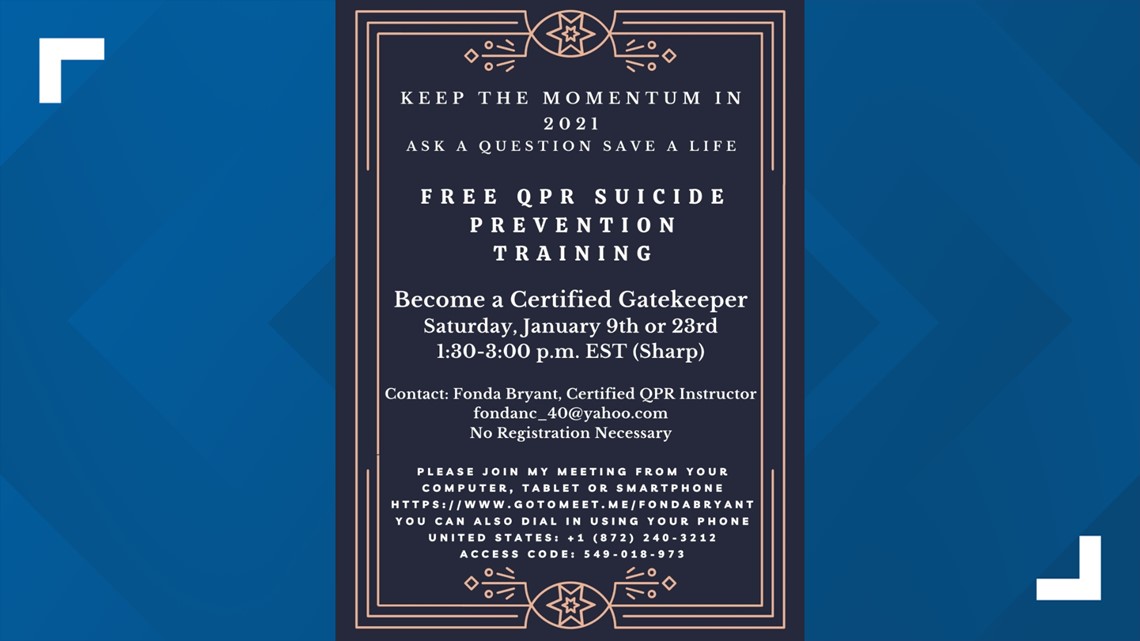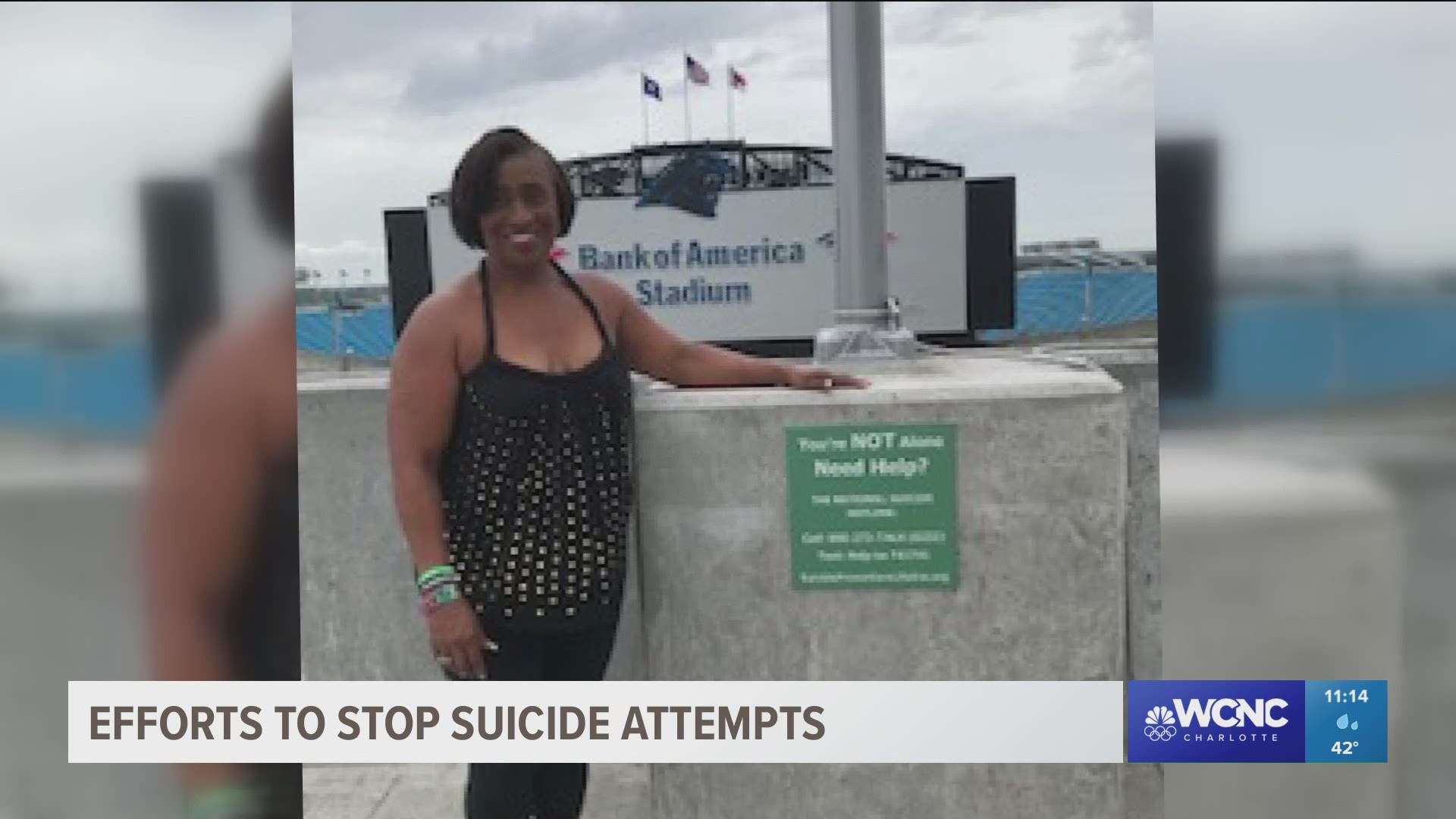CHARLOTTE, N.C. — Learning the signs of suicide may be one of the most important lessons you learn this year.
In fact, the Centers for Disease Control and Prevention (CDC) says suicide is the 10th leading cause of death in the U.S. But with the anxiety, depression and isolation brought on by the coronavirus pandemic, health experts say this health crisis is getting even bigger.
“It’s a recipe for disaster,” said Fonda Bryant, a mental health advocate, who works with the North Carolina chapter of the National Alliance on Mental Illness (NAMI).
Bryant said more suicides happen in the springtime, which during 2020 coincided with the global coronavirus pandemic and forced people into isolation.
“Isolation can turn into, from thinking about maybe hurting yourself to full-blown action and that’s why it is so critical now that people learn those warning signs of suicide so they can help someone,” she said.
Bryant said warning signs include, “withdrawal, not eating, eating too much, resorting to alcohol, drugs, not sleeping, sleeping too much.”
So all year, Bryant said she plans to host free QPR suicide prevention trainings. She said the trainings are free and open to anyone. They take about 1.5 hours, Bryant said, and all are done virtually.


"First thing I do is tell people to reach out, ask them how they’re doing,” Bryant said. She said everyone has bad days occasionally. "But if it lasts for more than two weeks and it starts affecting your everyday life, your job, your family, how you interact with people, you need to go see someone,” she said.
Bryant, herself, is a 25-year suicide survivor and said she understands first-hand the pain people in crisis are feeling.
“That pain outweighs the physical pain we’re going to feel jumping off a building, or shooting ourselves or hanging ourselves and that’s why society as a whole has to realize suicide is everybody’s business,” she said. “Suicide is the most preventable death of all deaths.”
Even though she understands their pain, Bryant said she was still shocked to hear how many people actually chose to end their life by jumping off of parking decks.
She said in 2018, she learned six people in the past four years had died after jumping off the Center City Green parking deck in Uptown Charlotte, across from the Spectrum Center.
“51% of parking decks have problems with people jumping,” Bryant said.
That’s when she said she began working with parking decks around the city to hang signs, letting people know there’s help. The signs also contain the National Suicide Prevention Hotline.
“We hadn’t had a suicide there since my signs went up and I was very proud of that,” Bryant said.
But last month, Bryant said she was informed that a woman had again jumped and died.
“I said, 'You know what, we need to start putting them at the bottom,' because people don’t see that until they get to the top and by then they might be in such a full blown crisis that they don’t see it,” she said.
Monday morning, Bryant said she received an email from the parking deck’s management saying they would be adding bigger signs to the entrance.
“I urge people to reach out to someone, to not be ashamed," Bryant said. "You can get the help you need, you can recover."
To reach Fonda and learn more about her trainings, email: Fondanc_40@yahoo.com
You can reach the National Suicide Prevention Hotline at 1 (800)273-TALK, or 1 (800) 273-8255. You can also text MHA to 7417-741.

